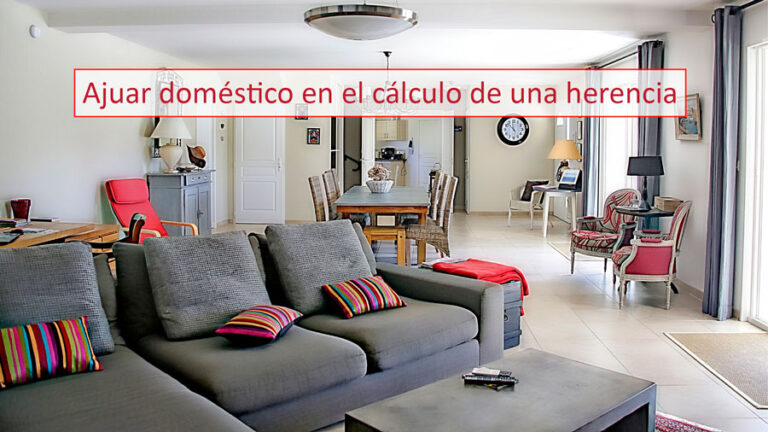
If you have to liquidate the Inheritance and Gift Tax (ISD) in the near future, you should know that the Supreme Court has ruled on how to value the domestic household goods for the purposes of this tax, which is included in article 15 of the Inheritance and Gift Tax Law (LISD).
The aforementioned article 15 states that: “The household effects shall form part of the estate and shall be valued at three percent of the amount of the deceased’s estate, unless the interested parties assign a higher value to these effects or can prove that they do not exist or that their value is lower than that resulting from the application of the aforementioned percentage”.
Until now, when calculating an inheritance, in addition to making an inventory of all the assets and rights of the deceased, a value had to be added for household goods, which is none other than three percent of the total assets, rights and shares of the deceased. This implied calculating household goods to things that made no sense whatsoever, such as money or shares in the stock market, as household goods are supposed to be personal assets that are not described in the inheritance, but are usually kept in a property (paintings, clothes, furniture, personal utensils, etc.).
In a recent Judgment of the Supreme Court, Contentious Chamber, dated 10 March 2020, this court concludes that:
In conclusion, the concept of household goods, not defined in the law, nor enumerated, cannot simply assume a percentage over the totality of the assets of the inheritance, but only over those which, according to civil and fiscal law, are properly household goods.
The Central Economic Administrative Court refers in the same terms when it states in its ruling of 30 September 2020 that “the idea that the three percent of the relict estate which, as a legal presumption, is established in the aforementioned article 15 LISD, includes the totality of the assets of the inheritance, but only those which can be affected, due to their identity, value and function, to the private or personal use of the deceased, to the exclusion of all others, is not correct”.
Moreover, the taxpayer does not have to prove the qualification of the goods by reason of their nature in order for the administration to exclude them from the household goods. In other terms, no proof is required from the taxpayer in respect of money, share certificates, copyrights or other intangible assets, as these are assets that cannot be included in the tax law concept of household effects, as they are not related to this category.
Both rulings have important implications both for self-assessments that are to be filed on the basis of these rulings and for those already filed previously, provided that they are not time-barred, because it gives the option of recalculating the household effects and requesting a refund of undue income for having self-assessed a higher amount than that which was due.
The original conditions of the city of Malaga and its coast (climate, geographical location, gastronomy,…
The rules for distributing dividends in capital companies are set out in Royal Legislative Decree…
The Supreme Court, in a recent ruling (STS 707/2023, of February 28) ruled on whether…
The presence of a notary public and the public faith that he or she imparts…
Individuals who acquire their tax residence in Spain as a result of moving to Spanish…
We obtain a favourable ruling in an eviction trial condemning the tenant to vacate the…